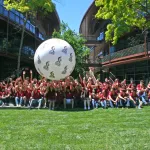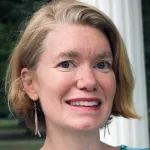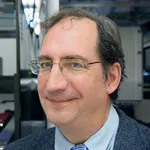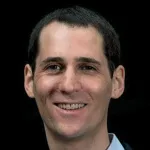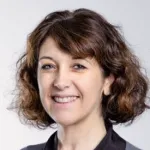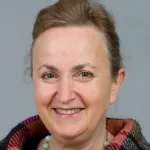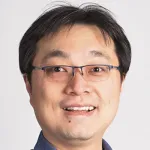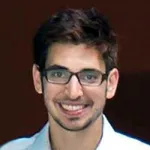-
-
Frontiers in Quantitative Biology Seminar
Frontiers in Quantitative Biology Seminar
AMY GLADFELTER, UNIVERSITY OF NORTH CAROLINA
The Gladfelter lab is interested in how cells are organized in time and space. They study how cytoplasm is spatially patterned and how cells sense their own shape. They also investigate how timing in the cell division cycle can be highly variable yet still accurate. For their work, we combine quantitative live cell microscopy and computational, genetic and biochemical approaches in fungal and mammalian cells.
-
CANCELED: Molecular insights into psychoactive drug actions
Stanford bio-X Frontiers in Interdisciplinary Biosciences Seminar
BRYAN ROTH, UNIVERSITY OF NORTH CAROLINA
This seminar has been canceled. Please join us for future seminars.
-
Stanford Bio-X Frontiers in Interdisciplinary Biosciences Pre-Seminar
Stanford Bio-X Frontiers in Interdisciplinary Biosciences Pre-Seminar
RON DROR, DEPARTMENT OF COMPUTER SCIENCE
Attend Dr. Dror's pre-seminar presentation to learn more about Dr. Bryan Roth's seminar, "Molecular insights into psychoactive drug actions", to be held Thursday, November 15th.
-
Powering Innovation through academia-industry cross-talk
Stanford Bio-X Frontiers in Interdisciplinary Biosciences Seminar
SYLVAINE CASES, JOHNSON & JOHNSON INNOVATION
Dr. Cases's is the Vice President of Oncology Scientific Innovation at Johnson & Johnson Innovation in California. She has significant experience in the fields of cancer biology and metabolism, with more than 16 years in research and drug discovery in both pharma and biotech.
-
From Bio-X to BioSTAR and beyond – the SPARK at Stanford way. Finding a path to developing a treatment for neurodegenerative diseases
Stanford bio-X Frontiers in Interdisciplinary Biosciences Seminar
DARIA MOCHLY-ROSEN, DEPARTMENT OF CHEMICAL & SYSTEMS BIOLOGY
Dr. Daria Mochly-Rosen founded the SPARK program to provide a cost-effective model to generate proof of concept using industry standards. Since 2006, SPARK has advanced scores of new diagnostics and drugs to the clinic and commercial sectors and educated hundreds of faculty, postdoctoral fellows, and students on the translational process. Dr. Mochly-Rosen's research lab is a multi-disciplinary lab that includes chemists, biochemists, biologists and physician scientists. They develop pharmacological agents and apply them to understand molecular and cellular events under basal and disease conditions using in vitro, in culture and in vivo models.
-
Fellows Symposium - October 2018
-
Physical biology at the semiconductor-enabled biointerfaces
Stanford bio-X Frontiers in Interdisciplinary Biosciences Seminar
BOZHI TIAN, UNIVERSITY OF CHICAGO
Recent studies have demonstrated that in addition to biochemical and genetic interactions, cellular systems also respond to biophysical cues, such as electrical, thermal, and mechanical signals. However, we only have limited tools that can introduce localized physical stimuli and/or sense cellular responses with high spatiotemporal resolution. Dr. Tian's group integrates material science with biophysics to study several semiconductor-based biointerfaces.
-
Stanford Bio-X Frontiers in Interdisciplinary Biosciences Pre-Seminar
Stanford Bio-X Frontiers in Interdisciplinary Biosciences Pre-Seminar
BIANXIAO CUI, DEPARTMENT OF CHEMISTRY
Attend Dr. Cui's pre-seminar presentation to learn more about Dr. Bozhi Tian's seminar, "Physical biology at the semiconductor-enabled biointerfaces", to be held Thursday, October 4th.
-
Stanford Bio-X Seminar: Lucien Weiss - "3D Imaging of DNA Loci in Live Cells at Ultrahigh Throughput"
Stanford Bio-X Seminar
Imaging fluorescently-labeled DNA in live cells with nanoscale precision shows significant promise as a diagnostic tool; however, the intrinsically stochastic nature of biological systems limits our ability to interpret meaningful signals from the noise. Here we discuss the implementation of advanced, 3D microscopy into an imaging flow cytometer and the unique calibration protocol we developed, in which we rely on statistical distributions rather than the unattainable static ground-truth. We demonstrate our system on live yeast cells, attaining 3D spatial information with orders of magnitude higher throughput than previous methods.

